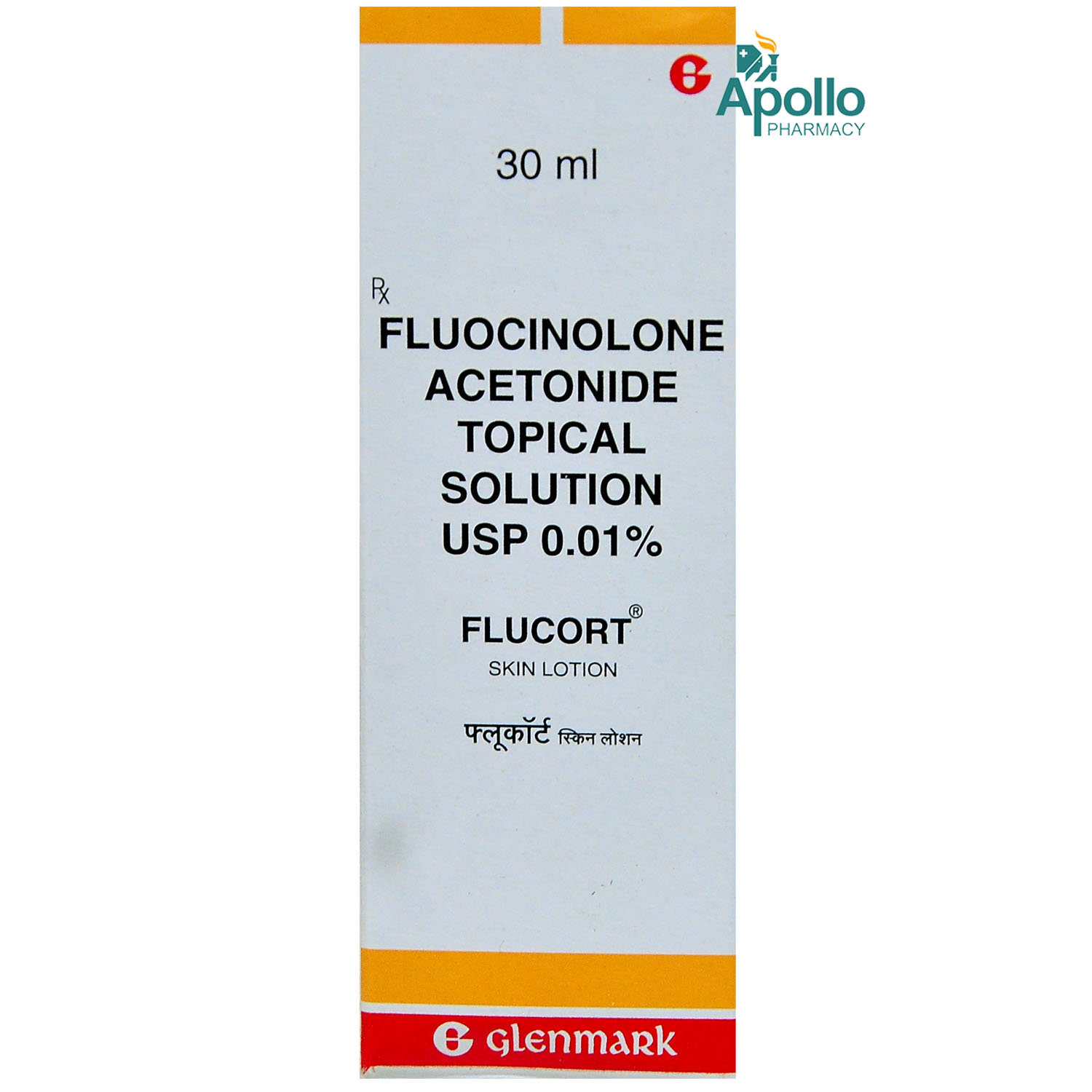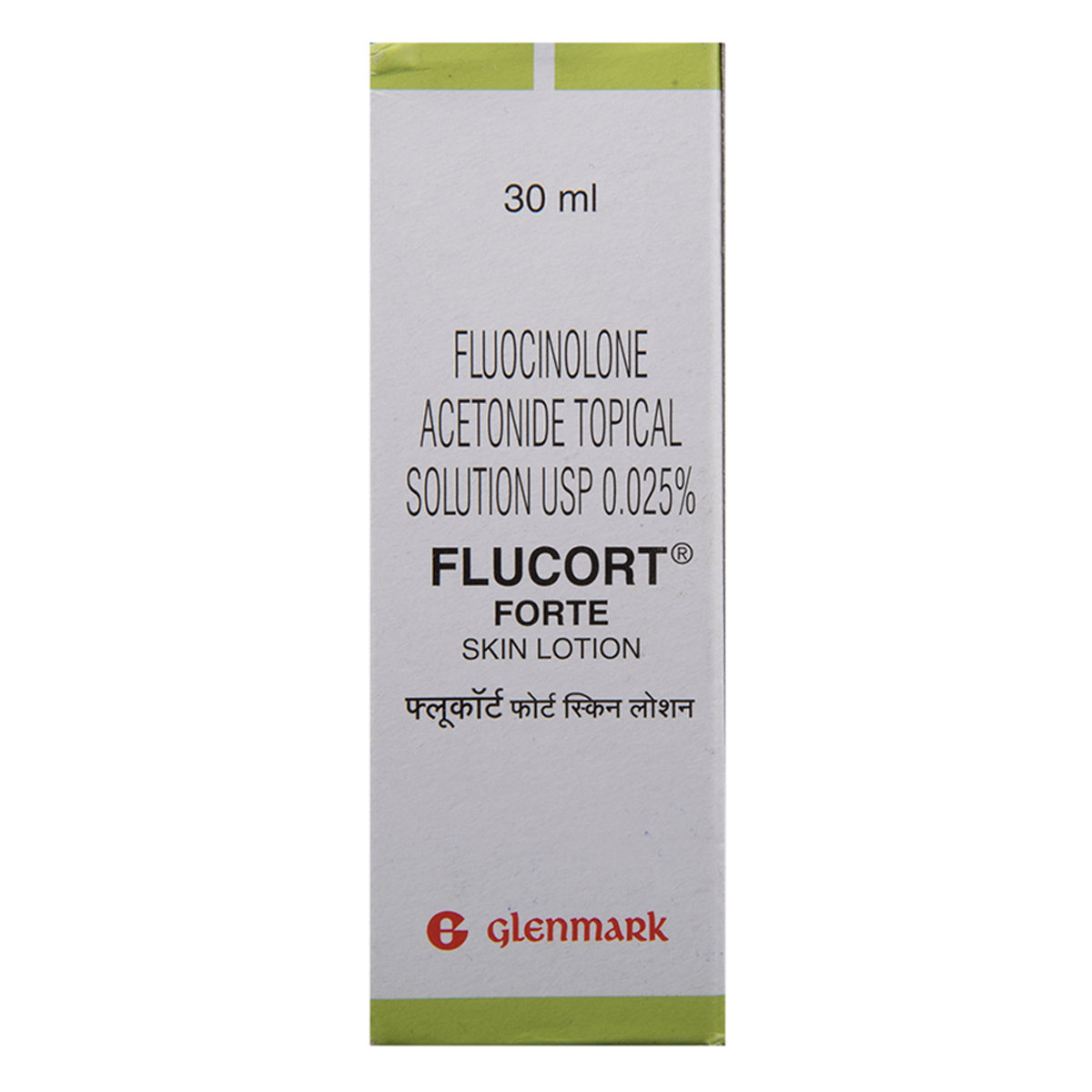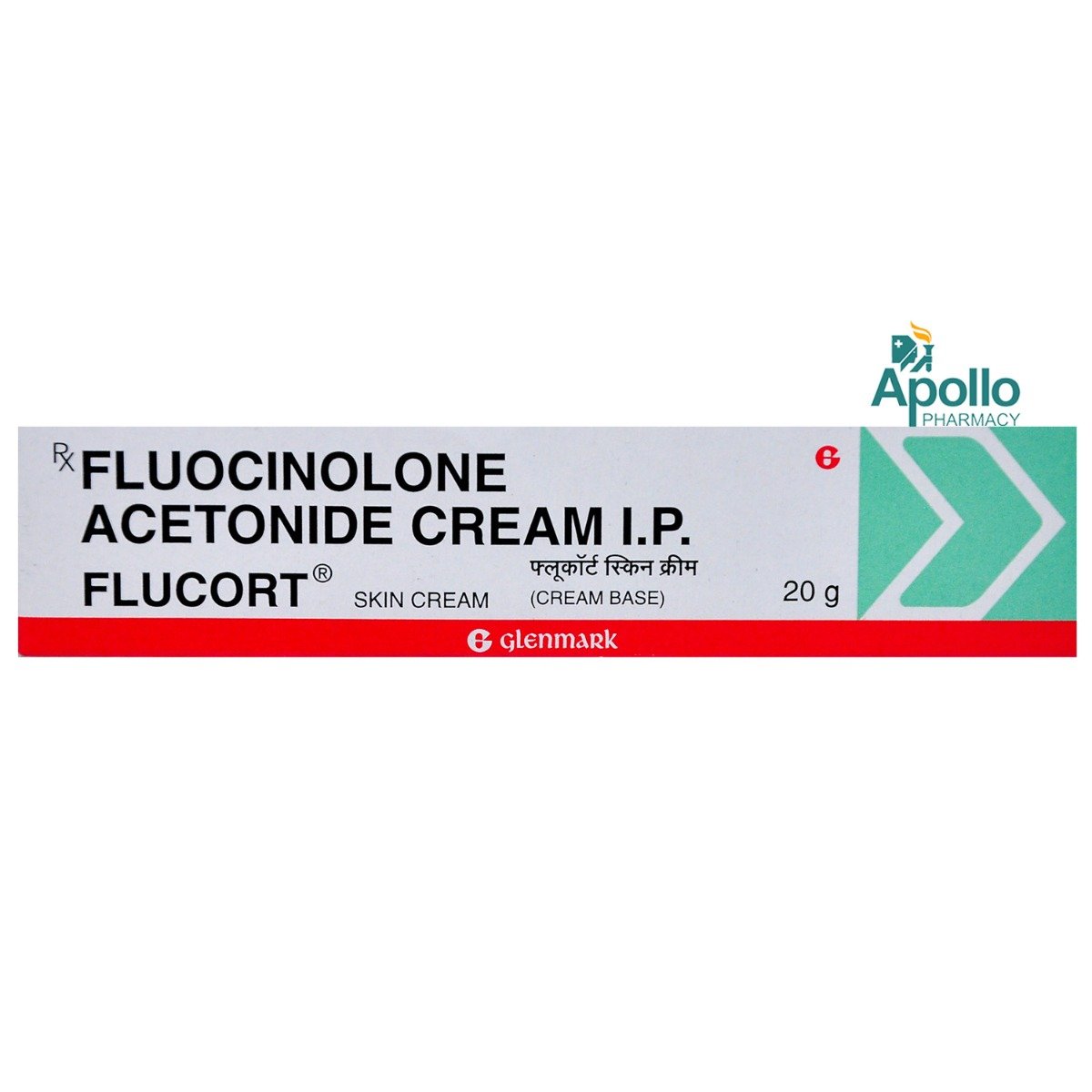Fluocinolone Acetonide
About Fluocinolone Acetonide
Fluocinolone Acetonide belongs to the class of medications called ‘Corticosteroids’ used to treat inflammation and itching caused by skin conditions such as seborrheic dermatitis, psoriasis, eczema and dermatitis. Seborrheic dermatitis is the inflammation of the oily glands present in the skin. Psoriasis is an autoimmune disorder that results in itchy and scaly rashes on the skin. Eczema is the red and itchy rashes on the skin that occur due to allergens such as pollen, food or other irritants. Dermatitis is a generalized term for inflammation of the skin.
Fluocinolone Acetonide contains ‘fluocinolone acetonide’ which belongs to the class of ‘corticosteroids’. It reduces the release of inflammatory mediators (chemicals that cause inflammation). It causes constriction of blood vessels decreasing the access of cells to the site of injury. This effect helps in reducing the swelling, pain, itching and discomfort.
Fluocinolone Acetonide is for topical use. You should take this medicine as prescribed by your doctor. The common side-effects of Fluocinolone Acetonide are burning or itching sensation at the site of application, body aches or pain, cough, sore throat, fever, headache, lightening of normal skin colour or treated areas of dark skin, stuffy or runny nose, tender, swollen glands in the neck, trouble swallowing, unusual tiredness or weakness and voice changes.
Do not take Fluocinolone Acetonide if you are allergic to ‘fluocinolone acetonide’ or any ingredients present in it. Before taking Fluocinolone Acetonide, inform your doctor if you have any skin infection, history of reaction to any steroid, liver disease or an adrenal gland disorder. Inform your doctor if you are taking prescription, non-prescription medicines, herbal products or dietary supplements. Also, tell your doctor if you are pregnant or breastfeeding.
Uses of Fluocinolone Acetonide
Medicinal Benefits
Fluocinolone Acetonide contains ‘fluocinolone acetonide’ which belongs to the class of ‘corticosteroids’. It is effectively used to treat various inflammatory, allergic and autoimmune diseases. It works by interfering with the inflammation process. It reduces the release of chemicals that cause inflammation. It causes constriction (narrowing) of blood vessels, decreasing the access of cells to the site of injury. This effect helps in reducing the swelling, redness, itching and discomfort.
Directions for Use
Storage
Side Effects of Fluocinolone Acetonide
- Burning or itching sensation at the site of application
- Body aches or pain
- Cough
- Sore throat
- Fever
- Headache
- Hoarseness
- Lightening of normal skin colour or treated areas of dark skin
- Stuffy or runny nose
- Tender
- Swollen glands in the neck
- Trouble swallowing
- Unusual tiredness or weakness
- Voice changes
Drug Warnings
Fluocinolone Acetonide should not be applied to damaged skin or open wounds. It should be used with caution in children as it may delay growth. It can increase your risk of infections as it can suppress the immune system. It should be used with caution in patients with diabetes, liver disease and skin infections. Inform your doctor if you are pregnant or breastfeeding.
Drug Interactions
Drug-drug interactions: Fluocinolone Acetonide should not be used along with medicine used for diabetes insipidus (desmopressin). It increases the risk of a severe decrease in sodium levels in the blood. It may also interact with blood thinners (nadroparin and bemiparin) and increase the risk of bleeding. When used in combination with a drug that stimulates the immune system (sargramostim), it increases the risk of side effects. Combining a medication used for the diagnosis of growth hormone deficiency (macimorelin) causes false-positive or false-negative results in the diagnosis of adult growth hormone deficiency.
Drug-food interactions: No interactions found.
Drug-disease interactions: Fluocinolone Acetonide should be used with caution in patients with skin infections, liver disease, adrenal gland disorder, and diabetes.
Drug-Drug Interactions Checker List:
Safety Advice

Alcohol
cautionConsumption of alcohol may increase the risk of side-effects.

Pregnancy
unsafeFluocinolone Acetonide is a category C medicine. It should be used with caution in pregnant women as it may harm the unborn baby.

Breast Feeding
cautionFluocinolone Acetonide may get excreted in the breast milk. So, it should be used with caution in breastfeeding mothers.

Driving
safe if prescribedFluocinolone Acetonide may not affect the ability to drive.

Liver
cautionFluocinolone Acetonide should be used with caution in patients with liver diseases. Dose adjustments may be necessary.

Kidney
cautionFluocinolone Acetonide should be used with caution in patients with kidney diseases. Dose adjustments may be necessary.

Children
cautionFluocinolone Acetonide should be used with caution in children as it may affect growth.
Habit Forming
Diet & Lifestyle Advise
- Eat a healthy and balanced diet and make sure you sleep at least 8 hours a day for a speedy recovery.
- Include heart-healthy omega 3 fatty acid containing food drinks in your daily diet. You can also use low-fat cooking oil like olive oil, soybean oil, canola oil and coconut oil.
- Avoid contact with any person who is having chickenpox, measles, tuberculosis as it might cause you the same infection as Fluocinolone Acetonide makes your body prone to infections.
- Opt for food and drinks high in Omega 3 fatty acid to get relief from pain, swelling and inflammation. Omega 3 fatty acid-enriched foods include flaxseeds, walnut, soybean oil, salmon and tuna fish if you prefer non-veg.
- Prefer more whole foods and grains instead of processed ones. Limiting starch may also help decrease inflammation.
- Avoid intake of processed foods, foods high in sugar and fat, as these may cause inflammation.
- Try to fill half your food plate with fruits and veggies.
- Limit salt intake and prefer herbs or spices like garlic, ginger and turmeric, a natural anti-inflammatory.
- Avoid alcohol as it can affect your stomach and intestine and limit the absorption of the important nutrients required by your body.
Special Advise
- Do not use if there is an infection or sore in the area to be treated.
- Though it is unlikely, Fluocinolone Acetonide may temporarily slow down a child's growth if used for a long time. See the doctor regularly so your child's height can be checked.
Patients Concern
Disease/Condition Glossary
Seborrheic dermatitis: Seborrheic dermatitis is a skin condition that causes an itchy rash with dry, flaky scales on the skin that contains oil glands such as the scalp, face, back, and upper chest.
Psoriasis: An autoimmune (immune system attacks healthy cells) skin disorder in which the skin becomes scaly, swelled up, and itchy.
Dermatitis: It is a skin condition that causes itchy, dry skin, or a rash on swollen, reddened skin.
Eczema: It is also called atopic dermatitis. It is a condition in which red and itchy rashes are seen on the skin, especially on the arms. It occurs due to allergens such as pollen, any foods, or other irritants such as soap.
FAQs
Fluocinolone Acetonide is a corticosteroid used in the treatment of inflammatory skin conditions. It also has antipruritic properties (reduce itching). It reduces the release of chemicals that causes inflammation, thereby reducing redness, swelling and itching of the skin.
While taking Fluocinolone Acetonide, do not contact anyone who has shingles, chickenpox or measles. If you accidentally come in contact with any person having them, please inform your doctor immediately as it requires special treatment if you have not had these illnesses.
Do not use for longer-term unless prescribed by your doctor as prolonged use may cause thinning of the skin and easy bruising.
Fluocinolone Acetonide can increase your blood sugar level. So, it should be used with caution in diabetes. You should monitor your blood sugar level regularly if you are taking Fluocinolone Acetonide.
Fluocinolone Acetonide should improve your condition within the first 2 weeks of your treatment. Consult your doctor if the symptoms do not improve.









